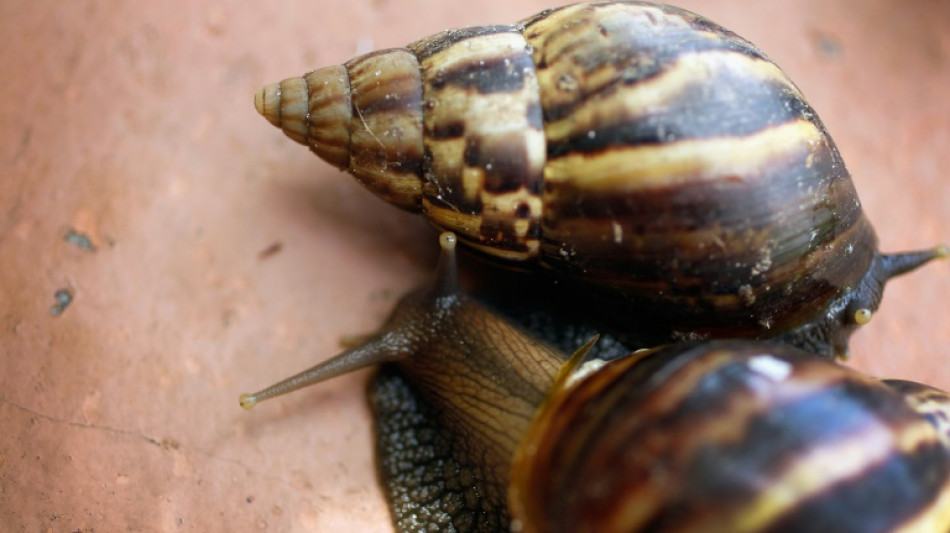
-
 Verstappen shades Piastri for pole at Silverstone
Verstappen shades Piastri for pole at Silverstone
-
Sinner powers into Wimbledon last 16 as Djokovic eyes century

-
 Chelsea add Gittens to glut of attacking talent
Chelsea add Gittens to glut of attacking talent
-
India's Gill hits another ton as tourists build huge lead over England

-
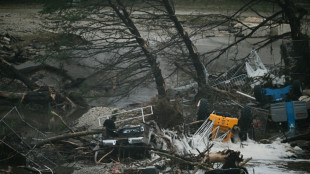 US rescuers search for missing girls in deadly Texas flash floods
US rescuers search for missing girls in deadly Texas flash floods
-
Sinner demolishes Martinez to reach Wimbledon last-16
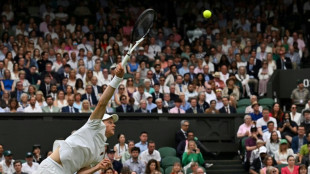
-
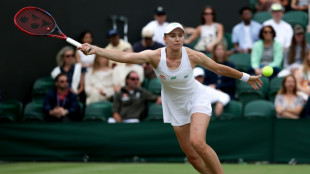 Former champion Rybakina crashes out of Wimbledon
Former champion Rybakina crashes out of Wimbledon
-
Wimbledon defends electronic line-calling after Raducanu criticism
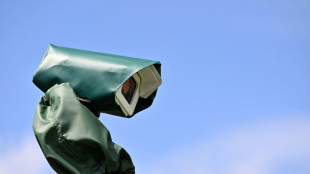
-
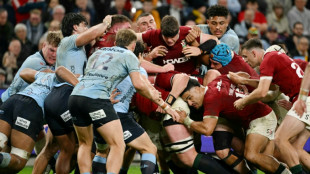 Farrell says Lions will learn from stuttering Waratahs win
Farrell says Lions will learn from stuttering Waratahs win
-
Fernando's 4-35 restricts Bangladesh to 248 in 2nd Sri Lanka ODI

-
 Prolific Jordan closes on All Blacks try record in nervy France win
Prolific Jordan closes on All Blacks try record in nervy France win
-
Rahul and Pant extend India's lead over England in second Test
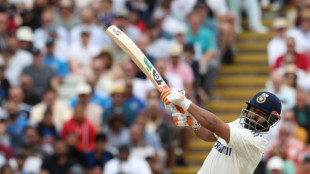
-
 FIA urges neutrality after Mayer launches presidency bid
FIA urges neutrality after Mayer launches presidency bid
-
Leclerc tops final red-flagged practice at Silverstone

-
 Scrappy Lions put through paces by under-strength NSW Waratahs
Scrappy Lions put through paces by under-strength NSW Waratahs
-
Djokovic eyes Wimbledon century, Swiatek steps up challenge
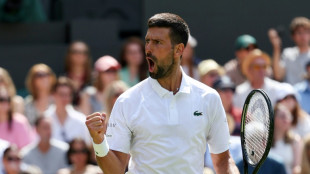
-
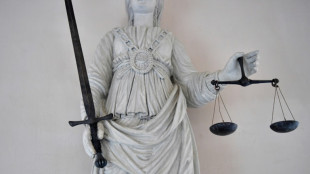 French doctor handed 10-year jail term for abusing patients
French doctor handed 10-year jail term for abusing patients
-
Hat sales spike at sunny Wimbledon

-
 New Zealand survive 'hell of a Test' against inexperienced France
New Zealand survive 'hell of a Test' against inexperienced France
-
Man City defender Walker joins Burnley

-
 China's first Legoland opens to tourists in Shanghai
China's first Legoland opens to tourists in Shanghai
-
'Childhood dream': Seine reopens to Paris swimmers after century-long ban
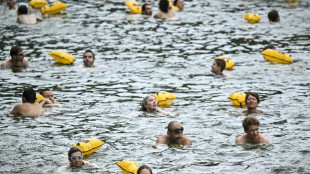
-
 Welsh 'scars' deepen after Japan loss extends losing streak to 18
Welsh 'scars' deepen after Japan loss extends losing streak to 18
-
Search continues after Pakistan building collapse kills 16

-
 New Zealand struggle past under-strength France 31-27
New Zealand struggle past under-strength France 31-27
-
Wallabies plan to throw everything at Fiji, says skipper Wilson

-
 Dalai Lama, on eve of 90th, aims to live for decades more
Dalai Lama, on eve of 90th, aims to live for decades more
-
Seine reopens to Paris swimmers after century-long ban
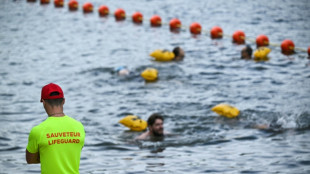
-
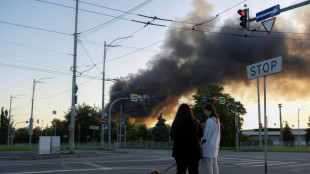 Trump evokes Russia sanctions after largest assault on Ukraine
Trump evokes Russia sanctions after largest assault on Ukraine
-
Afghans both hopeful, disappointed after Russia's Taliban recognition
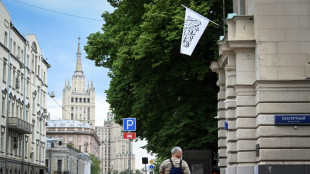
-
 Scotland survive stirring Maori All Blacks comeback for 29-26 win
Scotland survive stirring Maori All Blacks comeback for 29-26 win
-
Search continues after Pakistan building collapse kills 14

-
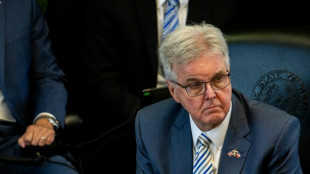 Texas flood toll rises to 24 as rescuers search for missing children
Texas flood toll rises to 24 as rescuers search for missing children
-
Brazil starlet Estevao 'ready' for Chelsea move: Palmeiras coach

-
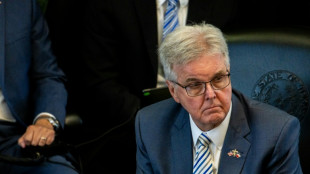 Texas flash flood death toll rises to 24
Texas flash flood death toll rises to 24
-
Chelsea edge Palmeiras to reach Club World Cup semis

-
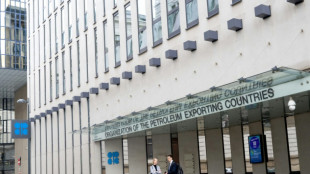 Eight OPEC+ alliance members move toward output hike at meeting
Eight OPEC+ alliance members move toward output hike at meeting
-
Prayers for the Dalai Lama in the heart of Mongolian Buddhism
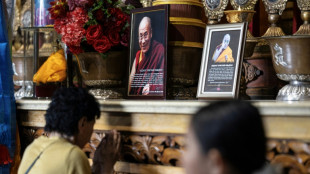
-
 Rivals ready to rock as fans flood in for Tour de France opener
Rivals ready to rock as fans flood in for Tour de France opener
-
Djokovic banks on 'home' advantage against Davis Cup teammate at Wimbledon
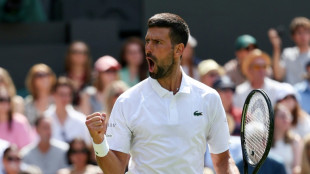
-
 Ozzy Osbourne set for swansong at Black Sabbath hometown gig
Ozzy Osbourne set for swansong at Black Sabbath hometown gig
-
Family and football unite to bid Diogo Jota farewell

-
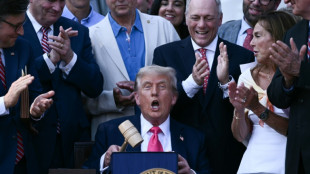 Bombers and a 'beautiful bill' -- Trump celebrates US Independence Day
Bombers and a 'beautiful bill' -- Trump celebrates US Independence Day
-
Mbappe 'better' and ready for Real Madrid against Dortmund at Club World Cup
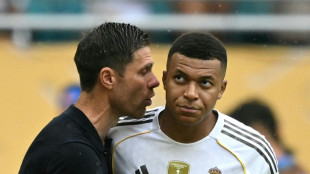
-
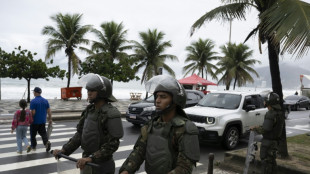 BRICS nations to denounce Trump tariffs
BRICS nations to denounce Trump tariffs
-
Ghim maintains one-shot lead at PGA's John Deere Classic
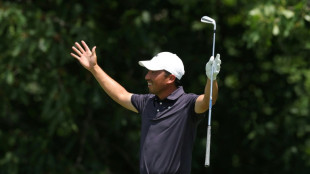
-
 Bayern Club World Cup clash with PSG a 'perfect storm': Kompany
Bayern Club World Cup clash with PSG a 'perfect storm': Kompany
-
Al Hilal showed Saudi league not just about money, says Koulibaly
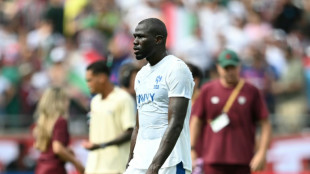
-
 PSG 'dead' unless they keep improving: Luis Enrique
PSG 'dead' unless they keep improving: Luis Enrique
-
MLB Cubs smash team-record eight homers to crush Cardinals


Invasive species problem will be 'worse before it gets better'
On land and in the sea, invasive species are destroying ecosystems, spreading disease and causing hundreds of billions of dollars in damage every year, according to a landmark report Monday from the UN-backed science advisory panel for the UN Convention on Biodiversity.
AFP spoke on the eve of its release to the three co-chairs of the report, approved last week in Berlin by the 143 member nations of IPBES, the Intergovernmental Science-Policy Platform on Biodiversity and Ecosystem Services.
The co-chairs are ecologist Helen Roy, a professor at the UK Centre for Ecology and Hydrology; Peter Stoett, dean of Social Sciences and Humanities at Ontario Tech University; and Anibal Pauchard, a professor at the University of Concepcion in Chile.
The following has been condensed and edited for clarity.
Q. You conclude that the number of invasive species is rising at an "unprecedented rate". Can you quantify that?
Roy: The problem is going to get a lot worse before it gets better. On current "business-as-usual" trends, we anticipate an increase of 36 percent by 2050. But that's assuming current conditions remain constant, which they won't.
With so many drivers predicted to worsen -- population, land use, global trade, climate change -- the increase of invasive alien species and their impacts are likely to be significantly greater. But there are so many factors, it's difficult to predict how many.
Q. The report put the damages caused by invasive species at $423 billion in 2019, but calls this a "gross underestimation". Why don't you have a more accurate figure?
Stoett: We should look at this figure as the tip of the iceberg -- it's what we have been able to see and measure. There are many other hidden costs, such as on health, like with the expanding footprint of malaria.
Many are intangibles. If a species goes extinct, how do you put a price on that? Or if people are losing pillars of their cultural identity.
Then there's the labour that goes into dealing with invasive species. In some communities women are pulling invasive species out of the ground all day. They're not getting paid, or taxed, so there's no record of it.
Q. Most invasive species spread through trade, but do individual consumers play a role too?
Pauchard: Yes, they do. Take ornamental plants. With a couple of clicks on the internet you can get a packet of seeds from just about anywhere. It may be non-native species, or have contaminants. When you plant it in your garden it may not stay there.
And then there's the pet and wildlife trade. People even have snails as pets without having any clue as to whether they are invasive. When they get bored of the pet, they just throw it in the garden or the pond, but it probably won't stay there.
Q. Prevention, eradication and containment -- which is most important?
Stoett: There is no doubt: prevention, prevention, prevention. If there's one word to distill what needs to be done, that's it. It is by far the most cost-effective. You invest less, and you get more.
Q. Examples of how prevention can be effectively done?
Roy: New Zealand, Australia have amazing biosecurity, as does Hawaii. Small islands are especially vigilant. If you go to South Georgia (in the South Atlantic Ocean) they will check the bottom of your boots and all your equipment.
Stoett: Human transportation is of course important, but the biggest problems are elsewhere -- shipping vessels carrying contaminated products, or species attached to their hull or in their ballast water.
Then there's the (deliberate) use of invasive species in agriculture and forestry. Grasses imported into Maui for grazing livestock were linked to the wildfires there.
Q. The report warns against the danger of "homogenisation" of ecosystems. Can you explain?
Pauchard: We live in cities, the most homogenised ecosystems in the world. We are losing our local communities, our local ecosystems.
The native grasses I saw when I first came to Europe are invasive species in Chile, where I'm from, and in California.
Homogenisation also goes with losing species, reducing uniqueness. It threatens the resilience of ecosystems. A more diverse natural area will be more resilient to climate change.
J.Williams--AMWN